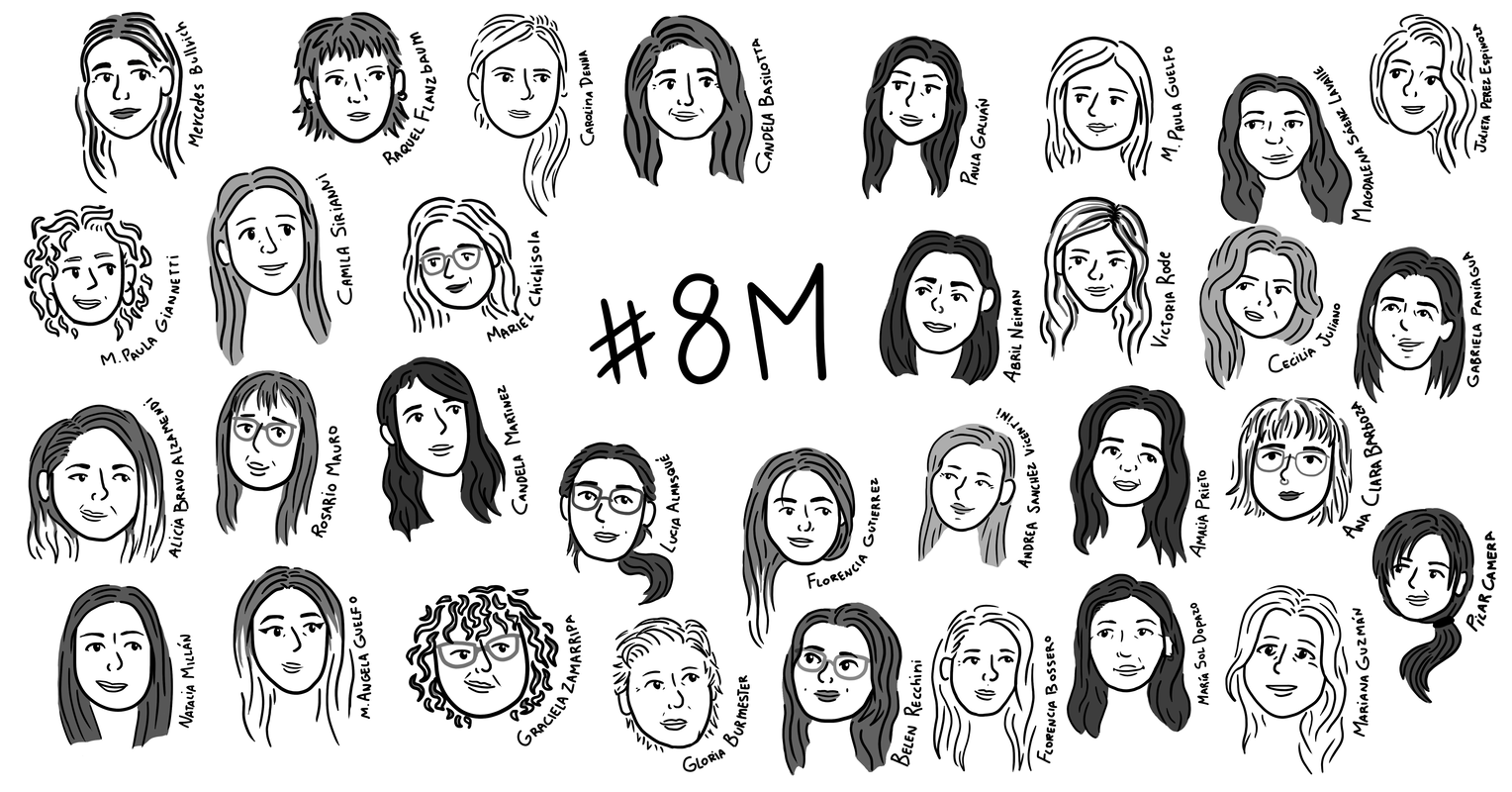On International Women’s Day, the heart of our movement beats more powerfully
By Abril Neiman
The International Women’s day is not a celebration, it is a commemoration. And I do not say this out of anger at those who celebrate those women who are important in their lives and highlight their role. No, I say it simply as an invitation to introspection, to recognize that there is a difference and that, at least today, it is still important to be able to point it out.
Women’s day is a day to reflect on what it has meant to be a woman in our history. It is, of course, a history of millions of stories with many different aspects. But ultimately, it is a history of struggle.
This commemoration has a global reach, although each country and each community has its own values and cultures that are reflected in the laws.
Legislation for women’s rights has progressed, yes, but unfortunately not at the same pace worldwide. The reality in one place is not the same in another.
Women’s Day was not recognized in opposition to what might be called “Men’s Day.” On the contrary, Women’s Day commemorates the journey women have taken over the last century to achieve equality with men.
Let’s go back to 1908 in New York, United States of America, a world that was – fortunately – very different from the one we live in today, a world in which women were still weakly trying to enter the labor market on an equal footing with men. At that time, the jobs a woman could hold were very limited and precarious, and they were held while at the same time maintaining the home and raising children.
In that reality, women did not vote, they did not have a public opinion, they did not participate in household decisions… In fact, they did not make many decisions in their lives at all. It was a world in which women’s autonomy seemed unthinkable and probably unquestionable. This may seem absurd to some today, but at one time this was the reality, and it still is in many places.
Although we cannot tie the origin of this date to a specific event, but to the struggle in general, various events have been reported over time that could have led to the emergence of this commemoration. Some say that in 1908 about 15,000 working women demonstrated in the streets of New York, mainly demanding shorter working hours and better wages. Others argue that the beginning of this date was marked by a sad event: a fire in a textile factory where women workers had gone on strike.
What we do know is that it was the combination of such events that led to the social recognition of women’s struggles and demands.
Finally, in 1975, the United Nations (UN) began to commemorate this date, and two years later, in 1977, the General Assembly proclaimed March 8 as International Women’s Day. The UN recognizes its origins in the women’s demonstrations that took place in the 20th century, mainly in Europe, demanding the right to vote, better working conditions and gender equality.
Again, the struggle of women – or the history of women itself – is not a single struggle.
There are many differences, but in their totality and in their origins, women came together and organized themselves more than a century ago to embark on an unknown journey, which has been prolonged and renewed over time, but which has always had the same goal: the full
enjoyment of their rights, which would allow women full autonomy and thus a life on an equal footing with men.
Equality is not an abstract idea, but is reflected in everyday life, because it makes the idea of discrimination sound absurd, and because it implies collective and equal participation, men and women, shoulder to shoulder.
Ultimately, equality will one day succeed in removing this issue from the public agenda:
That no person should ever have to bring the issue of gender to the table to claim their rights.
For further information please contact aneiman@ojambf.com

